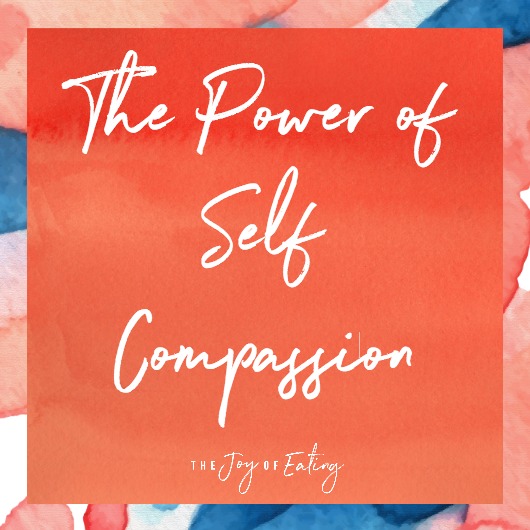The Power of Self-Compassion
This article was originally posted in January of 2015.
Imagine your best friend sitting in front of you, telling you how they came home from a long and stressful day at work and snacked on so many chips that they lost their appetite for dinner. Or perhaps the chips turned into a binge, one that left them physically ill and feeling completely out of control. Your friend is distraught, tearful, and consumed by shame.
What would you say to your friend? Would you respond with criticism and judgement? Call her a hot mess. Ask why she can't get herself together and display a bit of self control? Would you chip away further at her sense of self worth, telling her that she should feel guilty for what she did. Would you rattle off all the calories in the chips she ate, convincing her of the permanent damage she did to her body?
If so, hate to break it to you, but you're kind of a horrible person. Or a middle schooler. Basically the same thing.
Since I'm fairly positive all my readers are kind, compassionate people, I'm going to presume no one would dare say, or even think anything like that. You would listen to your friend, comfort her, remind her that what she's going through is really normal. You might remind her that overeating chips isn't going to kill her, nor is a binge. You might offer some advice, like a deep breathing exercise that helps when you're feeling stressed. As a friend and general decent human being, you would show compassion.
We know how to treat others with compassion, so why do we talk to ourselves in such a negative, critical and harsh manner?
I think a big reason we're so hard on ourself is because we mistake compassion for permission. We're scared if we forgive ourself for overindulging or missing a workout, that gives a free pass to do it again. We think criticism will motivate us to do better the next time.
It doesn't work that way. Self criticism leads to insecurity, anxiety and shame. It's a self-defeating habit that almost always leads to failure because shame keeps you trapped in a spiral of repeating the same behavior that made you feel shame in the first place. Shame is when you internalize your actions, questioning your own self worth because of your actions. If you feel unworthy or think you have some major character flaw, that impedes your ability to make a change.
In other words, if you think you're a failure, you''ll act like a failure.
Self compassion on the other hand is simply treating yourself with the same kindness and understanding you would give to others. Studies show demonstrating self compassion after a perceived failure improves chances for long term success. When you're able to remove yourself from the emotion of feeling like a failure and objectively survey the situation, it allows you to develop a better plan for next time. You can constructively criticize instead of just criticizing.
Next time you catch yourself spiraling into shame and criticism over something you did or didn't eat, stop and use that moment to practice self compassion. What would you say to a friend in the same situation? How would you treat them? You could even try comforting yourself with a physical gesture, like a hug. Sounds weird..and maybe it is...but giving yourself a hug has actually been shown to have a soothing effect. Or you could create a meaningful mantra, something to remind you that struggle is part of life and you're not alone in what you're going through.
Everyone struggles. Everyone fails. Everyone makes mistakes in their eating, probably every day. We're all perfectly imperfect.
More articles you might like:






